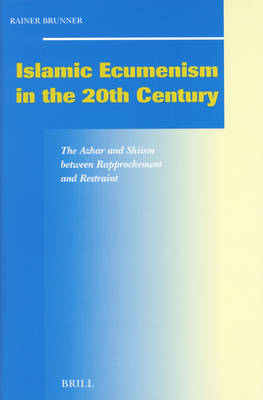Social, Economic, and Political Studies of the Middle East a
1 total work
The present volume describes the various phases of the inner-Islamic ecumenical dialogue in the 20th century between Sunnis and Shiites, the short-lived periods of success it achieved, but also the fierce mutual polemics it inevitably engendered.
The examination focuses on the role of the Cairene Azhar University as the most important representative of Sunni Islam and its relations with Shiite scholars. Particular importance is attached to the interdependency of theological arguments and the political motivations of the interlocutors, and especially to the significance of Islamic ecumenism for Egyptian foreign policy in the 1950s.
Although the main part of the study is confined to the time before 1979, in an epilogue the course of events is followed until most recent developments.
The examination focuses on the role of the Cairene Azhar University as the most important representative of Sunni Islam and its relations with Shiite scholars. Particular importance is attached to the interdependency of theological arguments and the political motivations of the interlocutors, and especially to the significance of Islamic ecumenism for Egyptian foreign policy in the 1950s.
Although the main part of the study is confined to the time before 1979, in an epilogue the course of events is followed until most recent developments.
